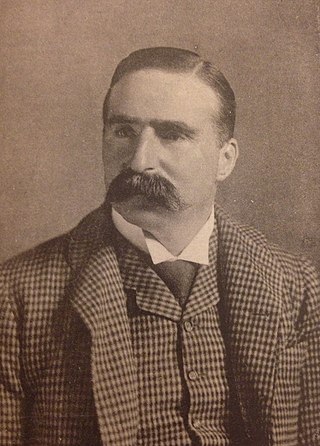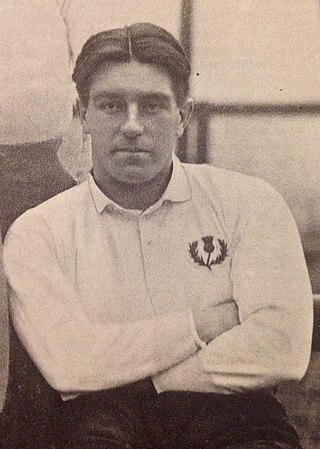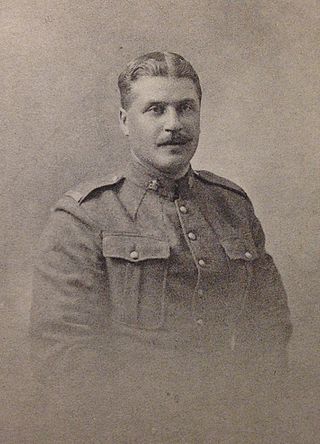Watcyn Thomas was a Welsh rugby union player who captained Wales in the early 1930s.

Ronald 'Ronnie' William Poulton was an English rugby union footballer, who captained England. He was killed in the First World War during the Second Battle of Ypres.

John Lewis Williams was a Welsh international wing who played club rugby for Cardiff Rugby Football Club. A three times Triple Crown winner, out of seventeen appearances for Wales he was on the losing side only twice.

William Purdon Geen was a rugby union wing and centre, who represented Wales, and played club rugby for Oxford University and Newport and county rugby for Monmouthshire. He was also invited to play for the Barbarians on several occasions. Geen unsuccessfully trialled for England in 1910, but was selected and played for Wales on three occasions in the 1912–1913 season. Injury prevented him from playing more internationals, and his service in the First World War put an end to his career.

Louis Augustus Phillips was a Welsh rugby player, who played half-back for Newport RFC, and won four caps for Wales. He was also a talented amateur golfer.

Colonel Richard Davies Garnons Williams was a British Army officer and Welsh rugby union player who represented Wales, Brecon and Newport. He played in the first Wales international rugby union match in 1881.

Eric "Puss" MacLeod Milroy was a rugby union player who represented Scotland and Watsonians. He was capped twelve times for Scotland between 1910 and 1914, his first appearance coming as a surprise replacement for the Scottish captain, George Cunningham. He was selected for the 1910 British Isles tour to South Africa after other players were forced to withdraw. Due to illness, he only participated in three matches, and did not take part in any of the tests against South Africa. In 1914, he captained Scotland against Ireland, and against England in the last international match before the outbreak of the First World War.

Lieutenant-Commander John Skinner Wilson was a Trinidad-born rugby player, who represented Scotland, United Services RFC and London Scottish FC. He enrolled in the Royal Navy in 1898. He was killed in World War I in the Battle of Jutland, serving as Lieutenant-Commander aboard HMS Indefatigable. He is remembered on panel 10 at the Plymouth Naval Memorial.

Walter Michael "Mike" Dickson was a rugby union player, who represented Scotland, Blackheath and Oxford. He was killed in World War I.
Captain Lewis Robertson was a Scottish rugby union player. He played for London Scottish FC and was capped nine times for Scotland between 1908 and 1913. He also played for the Army from 1904 to 1914, and several other clubs.

William "Willie" Middleton Wallace was a rugby union player. He played fullback for Cambridge University RFC and was capped for Scotland in 1913–14.

Pte. Andrew Ross was a Scottish rugby union player from Edinburgh. He worked in the Merchant Navy as a marine engineer. He played for Royal High School FP and was capped several times for Scotland between 1905 and 1909.

Pierre Guillemin was a French rugby union player, who represented France, Paris and Racing Club de France (RCF).
John Henry Dods was a Scottish rugby union player. He was capped eight times for Scotland between 1895 and 1897. He also played for Edinburgh Academicals. He was the brother of Francis Dods who was also capped for Scotland.
Harry Alexander was a rugby union international who represented England from 1900 to 1902, and was captain for one match, against Wales.

Arthur "Mud" James Dingle was a rugby union centre and wing, who won three caps for England, and played for County Durham, Hartlepool Rovers and Oxford University.
Douglas "Dan'l" Lambert was an English rugby union footballer for Harlequins, England, and the Barbarians. He won 7 caps for England between 1907 and 1911, notably scoring 5 tries on debut against France, and 22 points in another match against France. Lambert was all round sportsman: he was a scratch golfer, played football (soccer) for Corinthian Casuals, and kept wicket (cricket) for Hertforshire. He was killed in action at the Battle of Loos on 13 October 1915.

Francis Nathaniel Tarr was an English international rugby union player. He played centre for the Leicester Tigers and, between 1909 and 1913, won four caps for England, scoring two tries. He also earned three Blues while reading law at Oxford.
Vincent McNamara was a rugby union player who represented Ireland. He died at Suvla Bay, Gallipoli, Ottoman Turkey, during World War I.

Major Robertson "Robbie" Stewart Smyth was an international rugby player, who represented Ireland and Great Britain. Born in County Down, Ireland, he went to Dungannon Royal School, then studied medicine at Trinity College, Dublin, where he obtained his doctorate in 1904. After a year as house surgeon at Sir Patrick Dun's Hospital, he was commissioned into the Royal Army Medical Corps in 1906, and went to India the following year.














